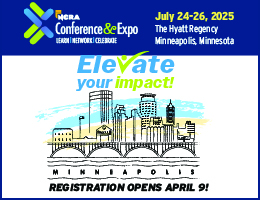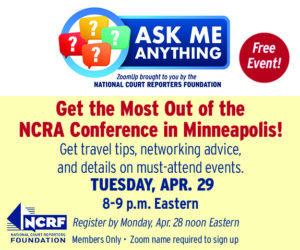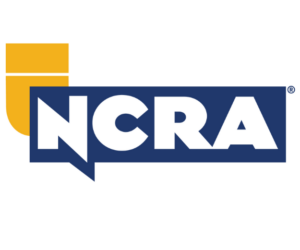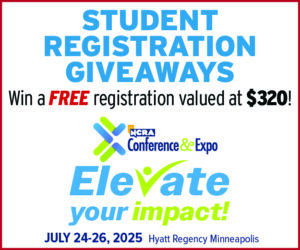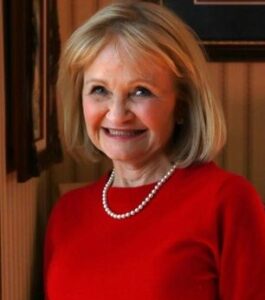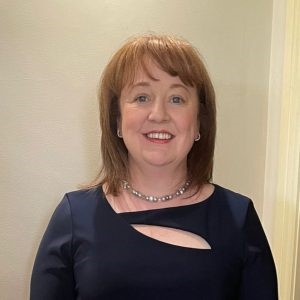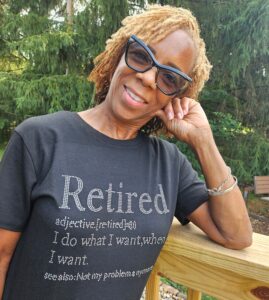This past March marked the 10-year anniversary of the National Court Reporter Foundation’s participation with the Veterans History Project. When celebrating an anniversary, it’s common to look back over the years and remember the milestones. With VHP, there are so many to remember. The partnership has been a huge success, thanks to all the staff and volunteers who have given many hours to coordinate the project, to interview veterans, and to transcribe their amazing stories.
To recognize the 10-year anniversary, NCRF created a Make the Promise campaign, which called on NCRA members and friends to deliver a total of 3,000 transcripts to the Library of Congress. NCRA members not only met but also exceeded the goal. To date, more than 3,020 transcriptions have been returned to the LOC since the beginning of the partnership in 2003. These years may have passed by quickly – but so much has been accomplished through VHP, a program that is filled with remarkable, moving stories of our veterans. NCRF has successfully run the project with the help of Beth Kilker, Oral Histories Program Coordinator. In addition to distributing recorded histories to the LOC, Kilker recruits new partners, creates reference materials for organizations to conduct VHP Days, and applies for grants.
BACK TO THE BEGINNING
The Veterans History Project at the American Folklife Center at the LOC came to life in 2000. The mission of VHP is to collect, preserve, and make accessible the personal accounts of American war veterans so that future generations may hear directly from veterans and better understand the realities of war. Since 2003, NCRA and NCRF have partnered with the LOC in an effort to help protect and preserve the history of U.S. veterans. Through this project, men and women who have served the United States in time of war have shared their stories – sometimes accompanied by photographs, letters, and diary entries – for generations to come.
NCRF’s partnership with the LOC took off quickly and that’s when the foundation realized it needed someone dedicated to managing the program. In 2004, NCRF convinced Kilker to come out of retirement. She had worked with the Veterans Affairs Committee for 25 years and what better choice could be made than someone who had the experience and great interest in working with veterans. “Beth has a rare passion for our nation’s veterans, and it shows every day, in every encounter she has. It was a lucky day for NCRF, and for me personally, when Beth agreed to come help the Foundation’s Veterans History Project,” says B.J. Shorak, NCRF’s Deputy Executive Director.
The Foundation staff members are not alone in their passion for the program. “As the son of a WWII veteran, father of an Iraq war veteran, and a career Army officer, it is very satisfying to see the value that we as a nation and our hundreds of volunteers nationwide put on preserving the personal remembrances of America’s veterans. VHP impacts the lives of our younger interviewers and fills a need by adding a chapter to a family’s history,” says Bob Patrick, director of VHP at the Library of Congress American Folklife Center. The collections are getting great use from the public, not only to inform and instruct scholars and researchers, but to educate teachers and the public on the human experience of war.
Megan Harris, senior reference specialist for the VHP, coordinates research and access to the collection. She explains that, in addition to learning about a veteran on their website, visitors can come to the American Folklife Center reading room to see a collection in person. As an official archive, VHP requires researchers to submit reference requests seven to10 days prior to their visit in order for staff to have the ability to pull the material, which is partially kept off-site for preservation purposes. “We see PhD students, academics, genealogists, documentarians, and veterans’ family members. We also have K-12 students who use the website because they want to read eye-witness accounts for their history-related projects.” Harris mentions the LOC doesn’t transcribe any audio/video sent to them and is thrilled when they receive transcribed interviews from NCRF and original donors. “So few interviews come with transcripts. Having them makes the collection much more accessible to researchers. That’s why we’re so grateful to NCRF for the transcripts they send us.”
Patrick says that the best part is when they hear from students who never knew about a particular conflict until they were assigned a VHP interview. “We are so fortunate to hear each week of the positive impact the project has had on people’s lives. From the daughter-in-law of a WWI veteran who thanked us, because if she hadn’t sent the journal to us it would have been ruined in flooding by hurricane Rita, to a member of the public who felt like after hearing the stories of men who served in the same unit as his late father, he understood him a little better.”
Over the years, Patrick says they’ve had to shift their focus from capturing oral histories of WWI veterans to looking for other documentation of their first-person accounts. In addition to WWII and Korean veterans, they are recognizing the need to capture the stories of Vietnam veterans who are now an aging group.
COURT REPORTERS A MAJOR HELP IN MAKING PROGRAM A SUCCESS
Out of the 3,000 transcripts provided to the LOC, close to 200 have come from hard-working volunteers from the Lone Star State of Texas. Stephanie Moses, official court reporter for the 193rd District Court in Dallas, and the current President of the Texas Court Reporters Association, has played a huge role in coordinating those efforts. Moses recalls how she and Jo Anne Leger, TCRA’s 2012-13 president, had been trying to come up with a project to strengthen the relationship with the State Bar of Texas outside of the courtroom. The two thought working together to take the histories of veterans from Texas would be a great idea. “In June of 2011, TCRA was invited to attend the State Bar of Texas Annual Meeting, and we set up a booth. We promoted the idea to all who visited our booth, and signed up attorneys who were interested in participating in the project. The list grew and grew, and by the end of the Annual Meeting we knew this project was off to a good start.” They advertised the events through newspapers, public service announcements on the radio, and word of mouth. The veterans, attorneys, and reporters were paired up, given a time to show up, and that’s how it got started.
When asked how it feels to be part of the program, Moses says, “Every time I transcribe a veteran’s history there is a sense of obligation that comes over me for this transcript to be absolutely perfect. It’s not that I don’t have a sense of pride when doing transcripts for work, but this is just different. I picture the face of the veteran in my mind when he receives his copy in the mail, and I can see just how proud they are to be remembered, to be honored in this way for the service they have given to this country,” she says. “The VHP lets our veterans know they are an integral part of our history, and having the opportunity to know their stories will be housed in the Library of Congress is the ultimate ‘thank you’ for their service.’”
Jan Ballman, RPR, President & CEO of Paradigm Reporting & Captioning in Minneapolis, Minn., wanted to get more involved with VHP when she came on the NCRF Board as a Trustee, stating that she felt there was so much good in it. Her firm has hosted a VHP Day in its office for the past few years right before Veteran’s Day. “I’m so blessed to have the most amazing staff and team of reporters who consistently volunteer their time on a Saturday as hosts, greeters, interviewers, reporters, and videographers.” Ballman describes it as truly the best day of the year and adds that everyone gets hooked after getting involved. As an easy way to participate, Ballman recommends doing one or two transcripts in your spare time. Since there isn’t a deadline, reporters can work it in whenever they have time. She admits, though, it’s best to meet the veteran in person because it’s very moving. “To be able to meet, honor, thank, and then capture the wartime and service stories of the men and women who protect us and keep our country free and safe is nothing short of a privilege. To use our skills as court reporters and resources as firm owners to make a VHP day happen is extremely gratifying.”
A PROJECT BRIDGING THE PAST TO THE FUTURE
You don’t have to be a working court reporter or videographer to participate in the program. Amanda Harwell, who is a student at Prince Institute and resides in Arlington Heights, Ill., began volunteering after seeing flyers posted around her campus. “After a visit to my wonderful grandparents, my grandfather strongly urged me to take part in the Veterans History Project. He is a veteran and thinks it’s crucial for young people to volunteer and educate themselves on the acts that took place,” Harwell says. After transcribing the interviews, she says she felt humbled by the experience. One of her veterans described how difficult it was to be drafted. “It really opened my eyes to a lot of tragic events that took place and how people were really affected by them.”
Harwell, like many reporters, says she gained much from volunteering. “Not only was it interesting, but it allowed me to practice my speed building on something outside of our regular dictations,” she says. “In the midst of this hectic education, we all need to find time for ourselves. Volunteering can allow us to make time for ourselves, increase our typing skills, and boost our self-esteem.” Since taking part in the VHP, she has tried to participate in more projects involving veterans. She says it has really encouraged her to step up and take part in whatever opportunities are available.
Part of the way students find out about the program is through dedicated volunteers. Dave Wynne, senior vice president of education for Stenograph, is one of many incredibly active people who volunteer in the program. He has coordinated several VHP Day at each of the company’s campuses and has encouraged other court reporting schools to get involved. “It’s so important to honor the vets as well as the volunteers who make it possible. We have an opening session with a color guard and a singing of the National Anthem. Then, we break into the interview sessions, follow it up with refreshments and a closing ceremony where we present certifications to the veterans and all the reporters who participate.”
Wynne adds that court reporters are guardians of the record, and the personal accounts of veterans are part of the human record and history of our country. “It is important that we know and understand both the horrors of war and the personal stories of these veterans who gave so much of themselves for our benefit. Our veterans, especially the WWII veterans, are dying at an unfortunate rate. We are in a unique position with specialized skills that no one else possesses to record their stories,” he says. “Any reporter who has ever participated will agree that they will probably never do anything as rewarding in their careers. You cannot help but be impacted by the stories and commitment made by these veterans regardless of the war.” For court reporters who don’t have that much time, Wynne mentions that people can request a CD from NCRF that they can transcribe on their own schedule. “While not as rewarding as the personal contact, they will still be moved. Plus there are CEUs tied to the effort in either case.”
Looking back over the years, Wynne shares a few of his favorites. “A veteran in Denver, who could not physically make it to one of the VHP events, was interviewed at his home. It was so meaningful to him that his family included a note about it in his obituary. Also, there was a group of Marine vets who came in uniform, some of which were from WWII and still fit, with a bulldog (the Marine mascot) dressed in his own camo uniform.”
Sherry Hill, the administrative representative at Prince Institute, works closely with Wynne and remembers hearing about VHP in 2007. When Hill got involved, she generated so much publicity for the event that they were inundated with calls from veterans and their relatives, so much that they had to schedule a second VHP Day to accommodate everyone. The project is a bit personal for Hill, who describes herself as a military brat. She fondly remembers one of the veterans, retired Col. Ernest Craigwell, a Tuskegee Airman, who passed away in 2011. Craigwell, a highly decorated veteran, gave the address to the school’s 2008 graduated class. “He encouraged our graduates to always pursue their goals, never back down from a challenge, and to continue to learn and grow as human beings,” Hill says, and notes that the students were lucky to be addressed by a real live American hero at their commencement. “The WWII vets we spoke to are a breed of men apart. They just don’t cut them from that kind of cloth anymore, and they are dying at an alarming rate. It’s imperative that NCRA continue their efforts in encouraging court reporting schools and professionals to participate in this worthy endeavor.”
Thanks to Wynne’s enthusiasm for the program, Jane Weingart, RMR, a freelance reporter from Burlington, Iowa, became involved after hearing a presentation he gave. “He was very enthusiastic about the project and urged other schools to participate.” Since then, so many volunteers have given their time and efforts to make each event a success. Weingart says that Kris Mattoon, lead VHP committee director, is a vital and tireless volunteer. “He is such a big supporter of the project and takes his personal time to go out and give presentations to groups in Des Moines.”
AIB’s first VHP Day was held in 2009, and the company has hosted an event around Veteran’s Day for the past four years. Their fifth annual VHP Day will be held this month. To date, more than 100 veterans have been interviewed, and their stories have been completed and given to the LOC, as well as the Gold Star Museum at Camp Dodge in Johnston, Iowa. AIB makes a big deal out of the day and presents signed certificates to the veterans, as well as the court reporters and videographers. The VHP days comes to life when Weingart describes them. “Many wear their uniforms and other military garb, and they are encouraged to bring any memorabilia they would like to add to their story. For some, this will be the first time they will have shared their wartime stories with anyone, including family and loved ones. Some prefer their families not be present for the interviews. The scars of war service are difficult to heal for many.” Weingart recalls one Vietnam veteran who was very reluctant to talk and was thinking of leaving while waiting for his interview to begin. “This was the first time he had told his story,” she says. That veteran now attends every VHP Day put on by the school, and he promotes the event to many veterans groups in the area and encourages other veterans’ participation in the program.
Weingart fondly remembers all the veterans throughout the years, noting that some of them have already passed away. In fact, she was saddened to hear that one of the veterans she interviewed in November 2012 passed away in early 2013. While he was in the hospital, the veteran and his wife proofed the draft. Weingart was able to get the transcript in final form to him shortly before his death. “I am so humbled by him, his wife, and son who were present at AIB – his courage at the Battle of Iwo Jima in World War II. I will never forget him.” Weingart has been inspired by all of the veterans. “Their shining faces remain with us and inspire us to continue the effort.”
